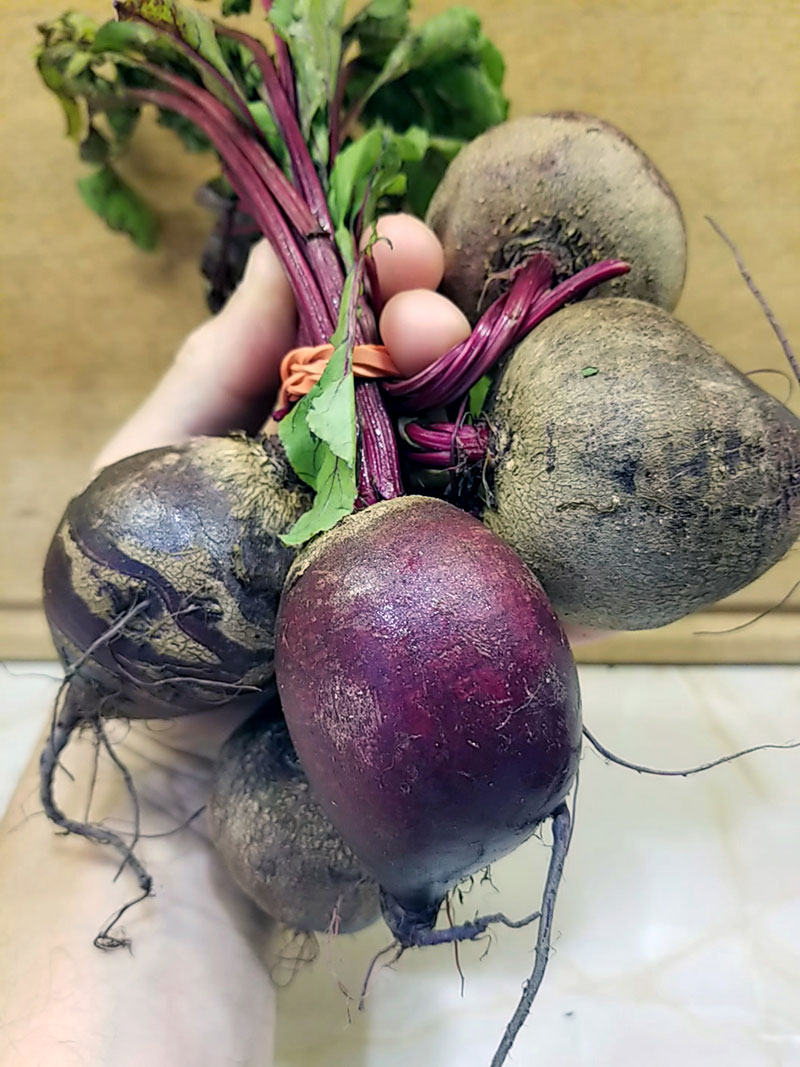Beets
TIMEFRAME: variesReduce oxalates in beets through portion control, food pairing, and fermentation.
Why Detoxify?
Both beet greens and beetroot have high levels of oxalates, which have been linked to kidney stones, joint pain, and chronic disease.
Eat Smaller Portions, Less Often
Limit beetroot consumption to when it is locally available, and eat each part of the plant on separate occasions. Avoid consuming either daily, or with other high oxalate foods.
Pair with Calcium
The northern Italians celebrate beets in barbabietole alla crema, which colors the crème fraîche with the rich hues and flavor of the beets. The Turkish dish pancar salatasi takes a similar approach with a beet and yogurt salad, as does the Labanese entree shawandar bi'l-laban, beets with yogurt. In the digestive tract, oxalic acid binds with calcium to help neutralize its chronic accumulation in the body. Additional dairy ferments that would benefit beets include cheese, kefir, or cultured butter.
Boil or Blanch
Oxalates are water soluble and can be reduced by boiling beet greens and discarding the cooking water. Unfortunately, B vitamins are also water soluble and will be lost in the process.
Ferment
Fermentation diminshes the oxalate content of beets. Beet greens and beetroot can be fermented as part of a sauerkraut or kimchi blend, or the root can be chopped into sticks and lacto-fermented like carrots.
Beet kvass is a classic eastern European ferment, which produces a refreshing probiotic beverage and residual beet-kraut through the same ferment.
Drink Water
Help your kidneys dilute and flush out oxalates in beets by staying hydrated before eating.
